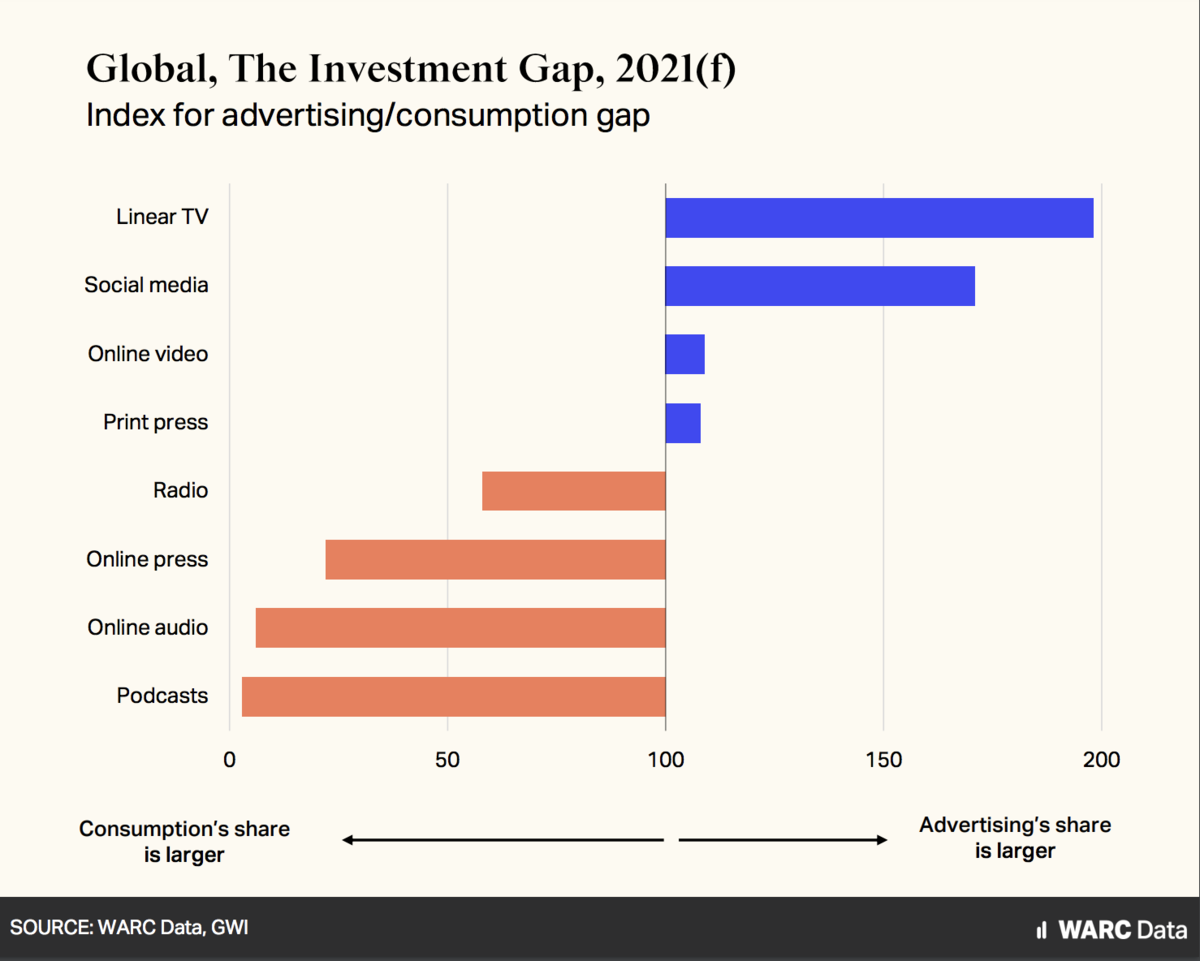DUBAI: Advertiser spend on TV and social media is highly inflated in relation to daily consumption, according to a new WARC analysis of advertising spend forecasts for 100 markets worldwide and the results of a survey by GlobalWebIndex of more than 715,000 consumers.
“The study shines a light on divergences between media investment and consumption, two metrics which are rarely seen to be in lockstep with one another,” said James McDonald, managing editor, WARC Data, and author of the report.
The analysis finds that, as of the first quarter of 2021, social media attracts more investment from advertisers than linear TV for the first time— however, both media channels draw far more advertising budgets than the average consumer spends with these channels each day.
Social media, for example, is forecast to account for 39.1 percent of 2022 ad spend among the eight media studied in the report: Linear TV, online video, social media, print press, online press, podcasts, broadcast radio and online audio.
However, social media has a 21.4 percent share of daily media consumption— a discrepancy of 17.7 percentage points, which is valued at $94.3 billion.

Since Q2 2016, social media has accounted for more than two hours of daily media consumption and is expected to reach two and a half hours during the second half of next year.
Linear TV ad spend, on the other hand, is twice the daily consumption and is forecast to account for a 31.5 percent share of advertising spend next year, compared to a 16.1 percent share of daily media consumption. This would equate to an investment gap of $86.9 billion worldwide next year.
“The seemingly inflated investment gap actually speaks more to the enduring power of the medium — its vast reach combined with attentive audiences and the heightened impact of audiovisual creative. These traits allow it to command a premium in the media mix, one which is likely to sustain even as social media further grows its share of budgets,” McDonald said.
While linear TV spend is inflated in relation to its consumption, online video is now close to parity after years of underinvestment. It is worth noting that the world’s largest online video platform, Netflix, is predominantly ad-free, while platforms such as YouTube are prone to adblocking on desktop and mobile devices.
Still, advertisers are forecast to spend $71.9 billion on online video this year — a 13.6 percent share of the eight studied media, which compares to a 12.9 percent of media consumption.
The most heavily undervalued media channels are undeniably audio and online press. Podcasts are undervalued by a massive $40 billion. Even with one in three Internet users now listening to a podcast each month, the advertising rates are much higher than even TV, which is well known to be a premium medium with high advertising costs.
Online press also appears to be another heavy undervalued medium: Advertisers would need to spend $58 billion on online press ads globally next year to achieve parity with consumption levels. However, the forecast spend is only $12.8 billion.
Consumers already spend a fifth of their media day in social feeds and are forecast to spend twice as long with social media than with online press next year signaling a dire future for online press.
Print press investment is now on a par with daily consumption on a global level, but advertisers would need to spend $45.3 billion more on online press to mirror these levels. This has led to publishers diversifying their business models to counter the shortfall in advertising revenue with 76 percent of publishers prioritizing subscriptions this year.




























